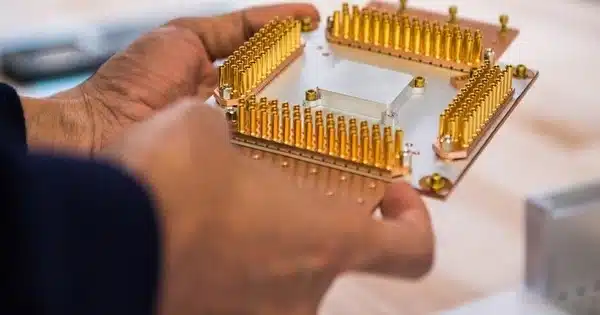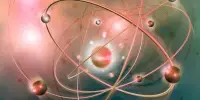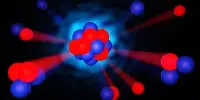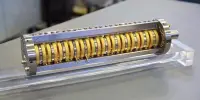The prevention of information loss in quantum computing was a major focus for physicists and researchers in the field. Quantum computing is based on quantum mechanics principles, which allow quantum bits or qubits to exist in multiple states at the same time, known as superposition, and to be entangled with one another. Nothing exists in a vacuum, but physicists often wish it didn’t. Things would be a lot easier if scientists could completely isolate the systems they study from the outside world.
Consider quantum computing. It’s a field that has already attracted billions of dollars in funding from tech investors and industry titans like IBM, Google, and Microsoft. However, even the smallest vibrations from the outside world can cause a quantum system to lose information. For instance, even light can cause information leaks if it has enough energy to jiggle the atoms within a quantum processor chip.
“Everyone is really excited about building quantum computers to answer really hard and important questions,” said Joe Kitzman, a doctoral student at Michigan State University. “But vibrational excitations can really mess up a quantum processor.”
But, with new research published in the journal Nature Communications, Kitzman and his colleagues are showing that these vibrations need not be a hindrance. In fact, they could benefit quantum technology.
Everyone is really excited about building quantum computers to answer really hard and important questions. But vibrational excitations can really mess up a quantum processor.
Joe Kitzman
“If we can understand how the vibrations couple with our system, we can use that as a resource and a tool for creating and stabilizing some types of quantum states,” Kitzman said. What that means is that researchers can use these results to help mitigate information lost by quantum bits, or qubits (pronounced “q bits”).
Traditional computers rely on a simple binary logic. Bits encode data by assuming one of two distinct possible states, commonly denoted as zero or one. Qubits, on the other hand, are more adaptable and can exist in both zero and one states.
Although this may appear to be cheating, it is perfectly legal under quantum mechanics. Nonetheless, this feature should provide quantum computers with significant advantages over conventional computers for a variety of problems in science, finance, and cybersecurity.
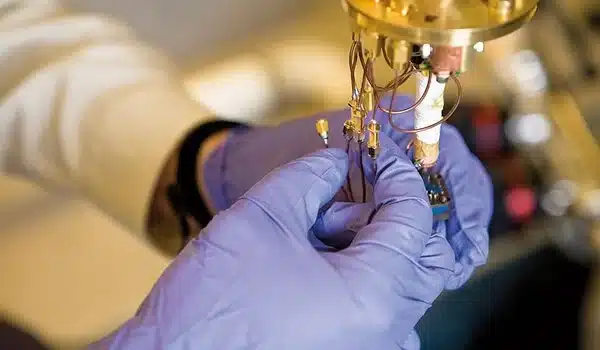
Aside from its implications for quantum technology, the MSU-led team’s report lays the groundwork for future experiments to better understand quantum systems in general.
“Ideally, you want to separate your system from the environment, but the environment is always there,” said Johannes Pollanen, Jerry Cowen Endowed Chair of Physics at Michigan State University’s Department of Physics and Astronomy. “It’s almost like junk you don’t want to deal with, but when you do, you can learn a lot about the quantum world.”
Pollanen also leads the Laboratory for Hybrid Quantum Systems, of which Kitzman is a member, in the College of Natural Science. For the experiments led by Pollanen and Kitzman, the team built a system consisting of a superconducting qubit and what are known as surface acoustic wave resonators.
These qubits are one of the most popular varieties among companies developing quantum computers. Mechanical resonators are used in many modern communications devices, including cellphones and garage door openers, and now, groups like Pollanen’s are putting them to work in emerging quantum technology.
The team’s resonators allowed the researchers to tune the vibrations experienced by qubits and understand how the mechanical interaction between the two influenced the fidelity of quantum information.
“We’re creating a paradigm system to understand how this information is scrambled,” Pollanen explained. “We have control over the environment, in this case, the mechanical vibrations in the resonator, as well as the qubit.”
“If you understand how these environmental losses affect the system, you can use that to your advantage,” said Kitzman. “The first step toward solving a problem is understanding it.”
MSU is one of the few places equipped and staffed to conduct experiments on these coupled qubit-mechanical resonator devices, according to Pollanen, and the researchers are eager to use their system for further research. Scientists from the Massachusetts Institute of Technology and Washington University in St. Louis were also on the team.
